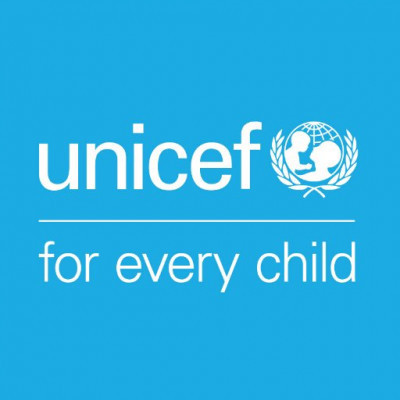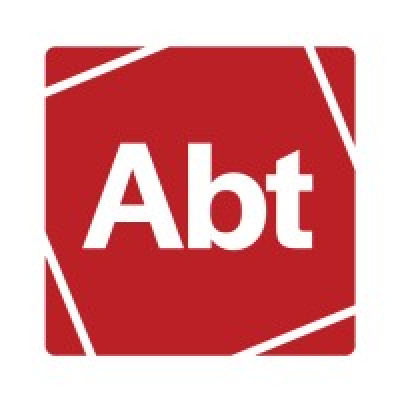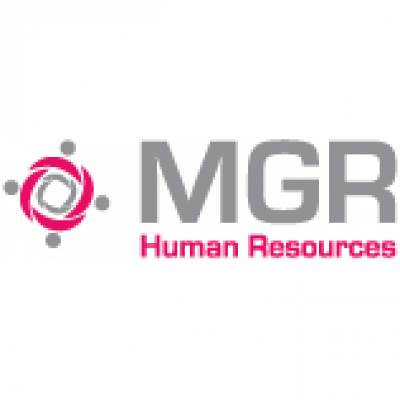Details
Description
Background
A. Background and Project Description
Timor-Leste is a Small Island Developing State, independent since 2002, making it one of the youngest democracies in the world. In only 19 years, it has taken significant steps to rebuild the nation and redefine its future, following centuries of colonization and a violent occupation that lasted 24 years, killing approximately a third of its population, and displaced almost half a million people in 1999. Timor-Leste's current population of 1.2 million people is one of the youngest in the Pacific, with 75% of whom are under 35 years old. It is the 15th youngest nation in the world.
Despite the notable efforts in state-building and economic growth (especially between 2007-2016), Timor-Leste is one of the least developed nations in the region, with 41.8% of the population living below the poverty line. Despite having a Human Development Index (HDI) of 0.625 in 2017, when weighed against the inequality factor, the HDI drops to 0.452. This inequality is predominant in rural areas - where 70% of the population is disproportionately affected by poverty, malnutrition, unemployment, and lack of access to quality education and basic infrastructure.
Inequality particularly affects women, who face discrimination within their homes and society, and across sectors of health, education, employment, and access to justice. Women’s labor force participation is 24.9 percent, less than half that of men at 52.5 percent.
Women and girls with disabilities, young mothers, women in vulnerable employment, such as domestic workers, and in rural areas have even greater challenges to accessing their rights as enshrined under the law. Although there is insufficient data to calculate the Gender Inequality Index (GII) for Timor-Leste, the 2017 female HDI value for Timor-Leste is 0.567 in contrast with 0.663 for males. In addition, the Spotlight Country Selection Proxy composite indicator and weighting (used in lieu of the GII for the region) rates Timor-Leste as 9.75, the third highest after Papua New Guinea and Palau.
Violence against women and girls (VAWG), Violence Against Children (VAC), and gender-based violence (GBV) continues to be one of the most widespread human rights violations in the world. It threatens the security and safety of countless women and girls and has short and long-term consequences on their physical, economic, social, and psychological well-being and health.
This gender inequality fuels the high levels of violence against women and girls (VAWG), which remains one of the most widespread human rights abuses in Timor-Leste. A dedicated prevalence survey in 2015 found that 59% of Timorese women (15-49 years) reported having experienced physical and/or sexual violence by an intimate partner in their lifetime. This has been further exacerbated by the COVID-19 pandemic. UNDP’s recent Socio-Economic Impact Assessment of COVID-19 in Timor-Leste (Round 2, 2021) revealed that child physical abuse, sexual abuse, and rape was 2-4 times higher in 2020 and 2021 compared to 2019. It was also noted that fewer cases of GBV were officially reported to MSSI, yet frontline service providers unanimously claim an increase in domestic violence, noting that women experiencing intimate partner violence may be less likely to report it due to relative isolation with abusers during home confinement, economic dependence, fear of contracting COVID-19 in shelters, etc.
Timor-Leste recognizes women’s rights as human rights and violence against women and girls as a serious and pervasive human rights violation and an extreme form of discrimination. The country’s existing strong VAWG national framework, having ratified most of the core international human rights treaties/conventions and development frameworks, with clear articles in its Constitution dedicated to gender equality (Articles 16, 17, 18, and 26). The Strategic Development Plan (SDP) 2011-2030 also addresses gender equality and women’s empowerment. In 2016, Timor-Leste ratified ILO Core Conventions No. 111 and No. 100 on gender equality and working to adopt a new International Labour Standard concerning the elimination of violence and harassment in the world of work (Convention No. 190) in June 2019.
Project Description
The Spotlight Initiative will accelerate Timor-Leste's progress toward reaching its targets under the 2030 Agenda, particularly SDG 5 on Gender Equality, but also SDG 3 “Health and Well-Being”, SDG. 4 “Quality Education”, SDG 8 “Promote inclusive and sustainable economic growth, employment and decent work for all”, SDG 10 “Reduced Inequalities”, SDG 11 “Sustainable Cities and Communities”, SDG 16 “Peace, Justice and Strong Institutions”, and SDG 17 on “Partnerships”. It will contribute to the National Strategic Development Plan and reinforce Timor-Leste's implementation of commitments under the Beijing Platform for Action, the Concluding Observations of the CEDAW Committee, Convention on the Rights of the Child, among other international obligations.
The Spotlight Initiative in Timor-Leste is implemented through five UN agencies (UN Women, UNFPA, UNDP, UNICEF, and ILO) with a focus on addressing intimate partner violence and domestic violence. In addition to the five agencies above, the Programme involves collaboration with the International Organization for Migration, the Human Rights Advisor’s Unit, and the World Health Organization.
The overall vision of the Spotlight Initiative in Timor-Leste is that women and girls enjoy their right to a life free of violence, within an inclusive and gender-equitable Timor-Leste.
The programme, aligned to the Timor-Leste "National Action Plan on Gender-based Violence (2017-2021)" will contribute to the elimination of domestic violence/intimate partner violence (DV/IPV) by responding to the needs of women and girls and addressing the underlying causes of violence against women and girls using a multi-sectoral and intersectional approach to implement intervention on the following six outcomes areas:
Pillar 1: Legislation and Policies
Pillar 2: Institutional strengthening
Pillar 3: Prevention of violence
Pillar 4: Available, accessible, and acceptable, quality services
Pillar 5: Quality and reliable data
Pillar 6: Supporting women’s movements and relevant civil society organizations
The Programme is grounded on the core principle of leaving no one behind and reaching the furthest behind first. The interventions have been designed to target women and girls most marginalized (rural, poor, with disabilities), at higher risk of intimate partner violence, and groups that face multiple or intersecting forms of discrimination.
To ensure the effective and meaningful impact of the Spotlight Initiative in Timor-Leste, the Programme focuses on a comprehensive set of actions at the national level, alongside community-based interventions in 3 municipalities (of the country’s 13 municipalities). Based on a preliminary analysis of needs, gaps, and opportunities, from a thematic and geographic lens and consultations with various stakeholders, the Programme focuses its community-level efforts in Ermera, Viqueque, and Bobonaro municipalities.
To ensure access to services to survivors of GBV, there is a need for real-time incidence data on the cases of GBV and a well-established case management system with comprehensive GBV referral pathways. In addition, the enhanced capacity of all the stakeholders along the GBV referral pathway to manage GBV cases as per the required standards. However, gaps exist in the generation of comprehensive, gender/age data, disaggregation forms of violence against women, girls, and children. This poses a barrier to fully understanding the scope and scale of violence against women and girls in the Country.
Duties and Responsibilities
B. Scope of Work
The Consultant will work on the enhancement of incident management system (IMS) as per the findings identified during the preliminary assessment of the IMS of the Vulnerable Person's Unit (VPU), Polícia Nacional de Timor-Leste (PNTL) in 2022.
IMS is a privately hosted intranet-based incident and investigation management online platform for VPU. It runs at VPU Municipality and National level. VPU captures incident or case information manually at the Sub-District level. Paper-based case information captured at Sub-District comes to VPU Municipality for entry in IMS. A unique case number is assigned to each entry of IMS case data. Once case information is captured in IMS at the Municipality level, VPU National Police can access the case information in real-time via an online facility. Based on the paper-based decision of the Public Prosecutor or Prosecutor-General, VPU National Police conducts investigation activities.VPU National uses the IMS to delegate investigation assignments to respective VPU members, prepare and print investigation reports, and for other management reports such as Crime Type Statistical Report, Incident Type Report, Victim Relation Statistical Report, Age Statistical Report, etc.
Paper-based case file moves across other institutions related to this incident and investigation management activities such as the Public Prosecutor's Office, Office of the Prosecutor-General, Court, and Prison.
The individual consultant should evaluate the existing business processes of the incident or case management, analyze the findings of preliminary assessments of IMS, and review the existing IMS, its architecture, and components, including source code and database schema, etc. S/he will ensure system enhancement is done as per requirement and prepare a report mentioning all changes accommodated into the system and the required technical documentation like updated Database design document, source code modification document, and operational manual in place. After completing the system enhancement, s/he should assist VPU-PNTL in conducting user acceptance testing (UAT) before Go Live. Capacitate the PNTL IMS IT Team to test and deploy the system in the production environment.
C. Objectives of the assignment
The overall aim of the assignment is to the enhancement of existing IMS for VPU.
The specific tasks for the Consultant will include:
Enhance incident/case entry by incorporating cascading relationship between Incident Type and Crime Type data, setting up a relation between Incident Type and Crime Type data at the database level, and necessary changes in the incident entry Form.
Enhance Victim entry by adding an Age field. This age filed value should be auto-calculated based on the input given in the Date of birth field. In case of an empty Date of birth field, there should be a manual Age entry provision.
Enhance incident/case searching by showing the case no, victim name/s, incident location, current status of a case file, which officer is currently holding or investigating the case, current officer’s supervisor name, etc.
Ensure a role-based permission policy in all menus and actions of the system. Role-based data filtering also needs to implement in the existing application.
Implement password creation and change policy as followings:
5.1 Introduce password expiry date in the system for six months.
5.2 Provide email or Short Message Service (SMS) notification to the user one month before expiry.
5.3 System should enforce changing the password after expiry.
5.4 While changing the password, it should not allow the most recently used two passwords.
5.5 There should have a concrete password rule like the followings-
a. At least six (6) characters-the more characters, the better.
b. A mixture of both uppercase and lowercase letters.
c. A mixture of letters and numbers.
6. A new report is needed to develop by adding search criteria such as Incident Type, Crime Type, Incident Location, Date Range of Incident, Gender, Age-range, and Disability.
7. Assist VPU-PNTL in conducting user acceptance testing (UAT).
8. Capacitate the PNTL IMS IT Team to test and deploy the system in the production environment.
9. Knowledge sharing with PNTL IMS IT Team about new changes.
10. Demonstrate updated database design document, source code modification document, and operational manual.
D. Expected Outputs and Deliverables
The successful Consultant will perform the tasks listed under Section B and deliver the following outputs as presented in the table below.
Deliverables/Outputs
Target Due Dates
Breakdown of the Payment
Review and Approvals Required
Deliverable 1: Submission of inception report and workplan to the Spotlight Initiative Project Manager
25 September 2022
10%
Project Manager, Head of Governance Unit
Deliverable 2: Submission of Change requirement specification with Mock Screens
05 October 2022
10%
Project Manager, Head of Governance Unit
Deliverable 3: Beta release of an enhanced version of IMS and submission of User Acceptance Testing (UAT) report
25 October 2022
25%
Project Manager, Head of Governance Unit
Deliverable 4: Final release of enhanced version and deployment in the production server.
05 November 2022
25%
Project Manager, Head of Governance Unit
Deliverable 5: Submission of the updated database design document, source code modification document, and operational manual.
12 December 2022
15%
Project Manager, Head of Governance Unit
Deliverable 6: Knowledge sharing with PNTL IMS IT Team through demonstration of the database design document, source code modification document, and operational manual.
15 December 2022
15%
Project Manager, Head of Governance Unit
Total
100%
E. Institutional Arrangement
The Consultant will report directly to the Project Manager of the Spotlight Initiative Project and the Head of the Democratic Governance and well as the VPU of PNTL. The Consultant will coordinate with, and receive support from, the National Rule of Law Officer and Project Associate throughout the duration of the assignment. The consultant will be expected to facilitate consultations and meetings with key government sector offices, officials, and authorities.
The consultant will work under the close guidance of the UNDP Timor-Leste Country Office (CO), RUNOs, and the UNDP-Regional Gender Advisor. The consultant will undertake her/his assignment with prior clearance by the UNDP CO. The consultant will maintain a dialogue with the project team/UNDP CO during the assignment.
F. Duration of the Work
30 days over a period of 2 months.
G. Duty Station:
Dili, Timor-Leste
Competencies
-
Required Skills and Experience
H. Qualifications of the Successful Individual Contractor
Education:
Master’s Degree in computer science, Information Technology, or other related disciplines.
Professional Experience:
Minimum of 10 years of professional experience in designing, developing, operating, and/or overseeing enterprise-grade solutions/ information systems/data management systems.
Experienced in National level System Architecting/Design/Development.
Experience developing, operating, assessing, and/or overseeing case management systems, ideally in the justice sector.
Practical work experience in the Asia-Pacific region and experience in Timor-Leste is an advantage.
Experience working with rule of law institutions and other government counterparts.
Ability to communicate effectively orally and in writing, to communicate complex, technical information to both technical and general audiences, including strong policy advice skills.
Language Skills
English language - excellent written and oral communication skills.
Proficiency in Tetun, Bahasa Indonesia, and/or Portuguese is an advantage.
I. Scope of Price Proposal and Schedule of Payments
Lump Sum Contract
The financial proposal must be expressed in the form of an "all-inclusive" lump-sum amount, supported by breakdown of costs as per template provided. The term "all inclusive" implies all cost (professional fees, travel costs (one roundtrip with economy most direct route, living allowances etc.). Under the lump sum approach, the contract price is fixed, regardless of changes in cost components. For duty travels, and other costs required to perform the demands of the TOR must be incorporated in the financial proposal.
Schedule of Payment:
The payment will be made based on the deliverables. The selected consultant must submit documents as per the deliverables which must be duly approved and serve as the basis for the payment of fees. The consultant will be expected to produce the deliverables within the agreed timeline under Section D of this TOR to be reviewed and approved as specified in the TOR.
J. Recommended Presentation of Offer
Interested individual consultants must submit the following documents/information to demonstrate their qualifications:
Dully accomplished Letter of Confirmation of Interest and Availability using the template provided by UNDP (to be downloaded from the procurement notice link);
Personal CV or P11, indicating all past experience from similar projects, as well as the contact details (email and telephone number) of the candidate and at least three (3) professional references;
Financial Proposal in the template provided by UNDP (to be downloaded from the procurement notice link).
Technical Proposal:
Brief description of why the individual considers him/herself as the most suitable for the assignment;
A methodology, on how they will approach and complete the assignment and work plan as indicated above.
K. Criteria for Selection of the Best Offer
The applications will be evaluated using a weighted scoring method, where the award of the contract should be made to the individual consultant whose offer has been evaluated and determined as:
a) Responsive/compliant/acceptable, and
b) Having received the highest score out of a pre-determined set of weighted technical and financial criteria specific to the solicitation and has accepted UNDP’s General Terms and Conditions.
* Technical Criteria weight; 70%
* Financial Criteria weight; 30%
Only candidates obtaining a minimum of 49 points of the technical criteria (70%) will be considered for the Financial Evaluation.
Technical Evaluation (70%)
Qualification, Experience and Competencies (70 marks):
Qualification and Experience (40 marks) [evaluation of CVs for shortlisting]
General Qualification (15 marks)
Experience relevant to the assignment (25 marks).
Technical Proposal (30 marks)
Technical Approach & Methodology (20 marks) – This explains the understanding of the objectives of the assignment, approach to the services, methodology for carrying out the activities and obtaining the expected output, and the degree of detail of such output. The Applicant should also explain the methodologies proposed to adopt and highlight the compatibility of those methodologies with the proposed approach.
Work Plan (10 marks) – The Applicant should propose the main activities of the assignment, their content and duration, phasing and interrelations, milestones, and proposed delivery dates. The work plan should be consistent with the technical approach and methodology, showing understanding of the TOR and ability to translate them into a feasible working plan.
Financial Evaluation (30%):
The following formula will be used to evaluate financial proposal:
p = y (µ/z), where
p = points for the financial proposal being evaluated
y = maximum number of points for the financial proposal
µ = price of the lowest priced proposal
z = price of the proposal being evaluated





